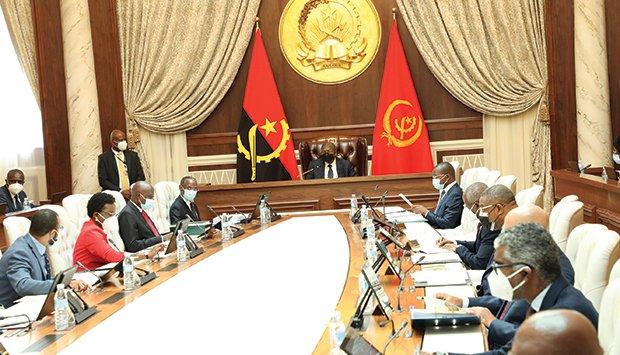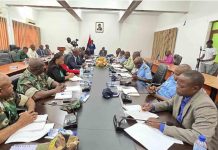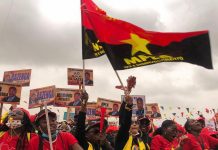Africa-Press – Angola. Taxi drivers and motorcycle taxi drivers are among the professionals who will benefit from mandatory social protection, with the approval, this Thursday (31), by the Council of Ministers, of the Legal Regime for the Mandatory Protection of Self-Employed Workers.
Inclusion in Social Security has been one of the demands of taxi driver associations in Luanda province. The diploma aims to make the access and registration of self-employed workers more flexible, creating a regime for those who work in low-income generating economic activities. It also intends to promote the formalization of street commerce and the activity of taxi drivers and motorcycle taxi drivers.
The meeting, guided by President João Lourenço, also approved the Presidential Decree that regulates the preparation and application of the Occupational Qualifier, a mandatory instrument for employers with more than 10 jobs.
According to the communiqué of the meeting, the diploma determines, among others, the competent entity to carry out the registration of occupational qualifiers at central and local level, namely the General Labor Inspectorate and standardizes the professions, allowing to stipulate balanced salaries for the different profiles. technicians associated with a professional career.
Also related to the Public Administration, Labor and Social Security sector, the Fees and Emoluments System to be collected by Vocational Training institutions controlled by the National Institute for Employment and Vocational Training (INEFOP) was approved. The diploma contains the principles, rules and procedures that aim to regulate the collection of fees for the purposes of registration, confirmation of enrollment, exchange and attendance in courses administered by the respective professional training centres, whether public or participatory management, intended to cover the operating costs inherent to its operation.
Radioactive waste management
In the field of energy, the Council of Ministers approved a set of diplomas that aim to stimulate, stimulate, encourage, implement and develop mechanisms for good management practices of naturally occurring radioactive materials (NORM) and other radioactive waste, to allow entities to responsible for these materials can carry out their activities safely and effectively.
This is the Regulation that establishes the general criteria and basic requirements for radiological protection and safety necessary for the management of naturally occurring radioactive materials (NORM) and other radioactive waste, as well as the necessary procedures for their handling, segregation, treatment, transport, transparency, storage and/or disposal in radiological facilities.
The Regulation was also approved, which establishes the requirements for the licensing of radiological facilities, choice and selection of sites for initial, provisional, intermediate and final deposits of waste of naturally occurring radioactive materials (NORM) and other radioactive waste, with the aim of protect exposed workers, the public and the environment.
The third Regulation sets out the general criteria and licensing procedure for initial, intermediate, provisional and final deposits of radioactive waste, to guarantee the protection of people against exposure to ionizing radiation, the safety of sources and the management of radioactive waste, the protection of the environment, as well as to prevent their unauthorized transfer, damage, loss or theft of radioactive sources e. thus, reduce the probability of exposure.
Within the scope of territorial planning and the fight against intra-municipal asymmetries, the Council of Ministers considered the Master Plans of the Municipalities of Bailundo, Caála, Catchiungo, Londuimbali, Mungo and Tchicala-Tcholoanga, all in the province of Huambo . These are instruments that contain guidelines of a strategic nature for the Executive’s plans, programs and projects for the urban development of municipalities.
For More News And Analysis About Angola Follow Africa-Press






